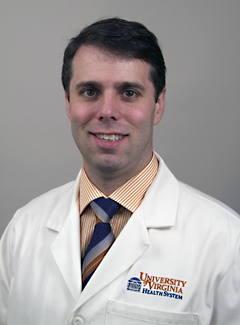
Jason P Sheehan, MD
Neurosurgery
Additional Locations
Bio & Overview
Jason Sheehan received his BS, MS, PhD and MD from the University of Virginia. His BS is in Chemical Engineering with the highest honors awarded from the School of Engineering. He performed fellowships at Auckland University and the University of Pittsburgh.
In 2017 Dr. Sheehan was named editor-in-chief of the Journal of Neuro-Oncology, the premier journal for neuro-oncology publications. He has written more than 250 peer-reviewed papers and has published several books and numerous invited manuscripts. He reviews manuscripts for the Journal of Neurosurgery, Neurosurgery, World Neurosurgery, Clinical Neurology and Neurosurgery and Nature Clinical Practice Oncology. Dr. Sheehan has an active laboratory pursuing translational and basic science research in the area of brain tumors. He also helps to oversee clinical trials for brain tumor patients.
Dr. Sheehan won the University of Virginia Clinical Excellence Award in 2006, the AANS/CNS Translational Brain Tumor Research Award, the WFNS Young Neurosurgeon Award and the Synthes Skull Base Award. He is the editor of SANS and serves on various committees in the Congress of Neurological Surgeons (CNS), World Federation of Neurological Societies, International Radiosurgery Association, North American Gamma Knife Research Consortium and Southern Neurosurgical Society. He is a member of the American Association of Neurological Surgeons (AANS), the American College of Surgeons, Leksell Gamma Knife Society, Neurosurgical Society of the Virginias, AANS/CNS Tumor Section and the American Society of Stereotactic and Functional Neurosurgeons.
Dr. Sheehan has joined the Focused Ultrasound Foundation as a Senior Advisor for Brain Tumor Research. As part of the Foundation’s team, he’ll define the Foundation’s strategy for brain tumor research.
Academic Information
- Department
- Neurosurgery
- Academic Role
- Professor
- Division
- Neurosurgery-Cranial
- Research Interests
- Brain tumors, radiosurgery, health care quality
Conditions & Treatments
- Acoustic neuroma
- Arteriovenous malformation (avm)
- Astrocytoma tumors
- Benign neoplasm of brain
- Brain metastases
- Brain neoplasms
- Chondrosarcoma
- Craniopharyngioma
- Epilepsy
- Gamma knife radiosurgery
- Glioblastoma multiforme
- Hemangioblastoma
- High grade astrocytoma
- Low grade astrocytoma
- Malignant brain neoplasm
- Meningioma of the spine
- Metastatic brain cancer
- Neuroendocrine tumors
- Obsessive compulsive disorder (ocd)
- Olfactory neuroblastoma
- Pediatric brain tumor
- Pituitary adenoma
- Pituitary tumor
- Primary brain tumor
- Skull base tumor
- Spine mets
- Stereotactic ablative radiotherapy
- Stereotactic radiosurgery
- Trigeminal neuralgia
- Gender
- Male
- Languages
- English
- Age Groups Seen
- Adults (21-65)
Older Adults (65+)
- Primary Education
- University of Virginia School of Medicine
- Residency
- University of Virginia Medical Center
- Fellowships
- Auckland Hospital, University of Pittsburgh School of Medicine, University of Virginia Medical Center
- Certification
- American Board of Neurological Surgery (Neurological Surgery)
Highlights
Dr. Jason Sheehan profile video
My name is Jason Sheehan, and I'm a professor of neurosurgery at the University of Virginia Health System. I was mostly interested in medicine as I took a course in neurosciences. I was particularly fascinated with the brain and the complexities of the brain, not just anatomically, but also from the standpoint of its functional complexity. I was critically interested in using engineering principles to solve complex neurosurgical problems. I treat patients primarily with complex brain disorders. The patients that I treat most often are patients with benign and malignant brain tumors and certain types of complex blood vessel abnormalities called arteriovenous malformations. We treat those patients often with something called Gamma Knife surgery. The gamma knife is a bit of a misnomer. It is a neurosurgical device that allows for minimally or non-invasive radiation, highly focused gamma radiation, to be delivered to specific small volumes within the brain. If you would come to see me, we would meet in clinic and discuss your condition. We would discuss the various options. I would go over your scans, most commonly an MRI and an angiogram, sometimes a CAT scan as well, and we would outline the various treatment options. We have a wide variety of experts in the field of neurosciences. We have not just an outstanding world-class neurosurgical program, but we have excellent neurologists and colleagues in behavioral health sciences and psychiatry. Through that multi-disciplinary team approach, we can usually provide the patient with an optable treatment pathway.
Awards
- 2011-2020 Best Doctors in America® List
- 2018 Best Bedside Manner Awards, OurHealth Charlottesville and Shenandoah Valley Magazine; Third Place, Surgery: Neurosurgery
Reviews
135 Patient Satisfaction Ratings
Our patient satisfaction ratings are an average of all the survey responses to the below questions a provider got within the past 2 years. To protect your privacy, patients aren't identified.
See more about our patient satisfaction surveys .